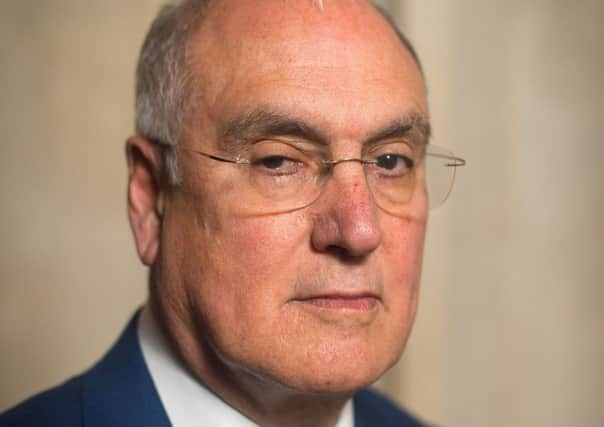Bad and getting worse: This north-south divide in our classrooms


Sir Michael Wilshaw, delivering his final annual report on England’s schools, said the proportion of high achievers in the North and the Midlands who go on to score well at GCSE is lower than in the South.
In a wide-ranging critique of the education system, the chief inspector also said a serious knowledge and skills gap is threatening the country’s competitiveness - particularly in the wake of the decision to leave the European Union.
Advertisement
Hide AdAdvertisement
Hide AdWhile he highlighted significant improvements in the country’s nurseries, pre-schools and primary schools, he also identified “unabated” pressures on the supply of secondary school teachers.
He said: “Last year, I highlighted the disproportionate number of schools that are less than good in the North and Midlands, compared with the South and East of England. This year, that gap has widened slightly.
“More than a quarter of secondaries in the North and the Midlands are still not good enough. The geographical divides within the country are most acute for children on free school meals, the most able pupils and those who have special educational needs.
“There is also considerable evidence that it is schools in isolated and deprived areas where educational standards are low that are losing out in the recruitment stakes for both leaders and teachers.”
Advertisement
Hide AdAdvertisement
Hide AdThis year there are 13 local authority areas where every secondary school inspected was rated either good or outstanding - all are in London or the South East of England.
However, there are 10 areas with 40% or more of pupils who are in secondary schools that are less than good, and where attainment and progress is below the national level in the key accountability measures - and all but three are in the North and Midlands.
The North West was described as being of “particular concern”, with the proportion of its secondary schools rated good or outstanding only increasing by 3 percentage points since 2011 - well below the national percentage points increase of 13.
And in Liverpool, half of all secondary schools were rated less than good, compared with three in 10 for Manchester, and just one in 10 for inner London.
Advertisement
Hide AdAdvertisement
Hide AdSir Michael said there is a need for greater emphasis on the importance of technical knowledge and skills, particularly in the wake of the EU referendum.
He said: “As a nation, we are at a crossroads. We can intervene to inject the system with the vision, skills and energy it needs, or we can be content with the status quo and the consequences of that failure.
“With the prospect of an imminent departure from the European Union, and a potentially seismic shift in how skills are drawn into the workforce, this cannot come too soon.”
Sir Michael also praised schools’ success in allowing different cultures to integrate, and said work must continue to spot risks to that cohesion.
Advertisement
Hide AdAdvertisement
Hide AdAnd in what might be interpreted as a parting shot at the Government - particularly its plans to roll out a range of new grammar schools - he said: “My advice to Government is, therefore, to worry less about structures and more about capacity.
“No structure will be effective if the leadership is poor or there are not enough good people in the classroom.”
The report showed that, for the sixth year in a row, the proportion of good and outstanding nurseries, pre-schools and childminders has risen and stands at 91%.
The proportion of good and outstanding primary schools has also risen from 69% to 90% in five years, while the reading ability of pupils eligible for free school meals at age seven in 2015 was six percentage points closer to the level of their peers than five years ago.
Advertisement
Hide AdAdvertisement
Hide AdThere are also 1.8 million more pupils in good or outstanding maintained schools than in 2010.
School Standards Minister Nick Gibb said: “We want every child to have access to an excellent education, regardless of their background or where they live.
“We know there is more to do, and that’s precisely why we have set out plans to make more good school places available, to more parents, in more parts of the country - including scrapping the ban on new grammar school places, and harnessing the resources and expertise of universities, independent and faith schools.
“As the Secretary of State has made clear, we are also determined to put technical education in this country on a par with academic routes.”